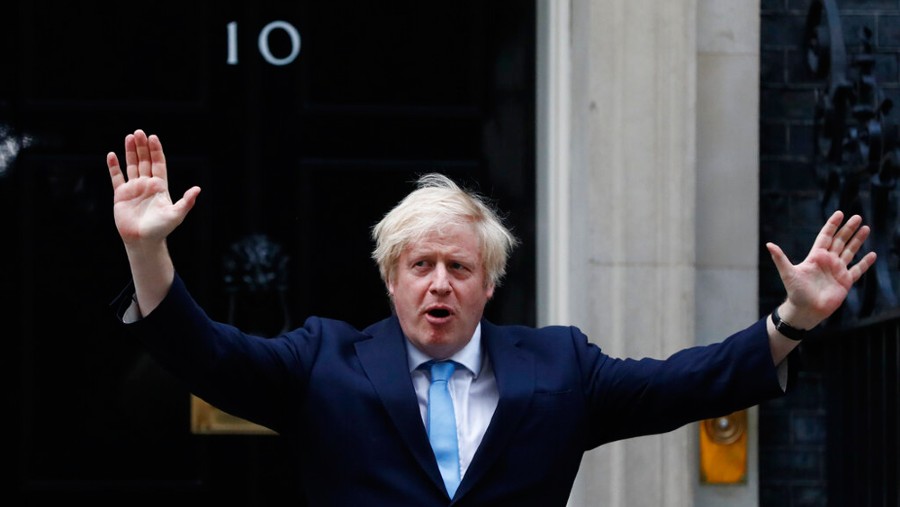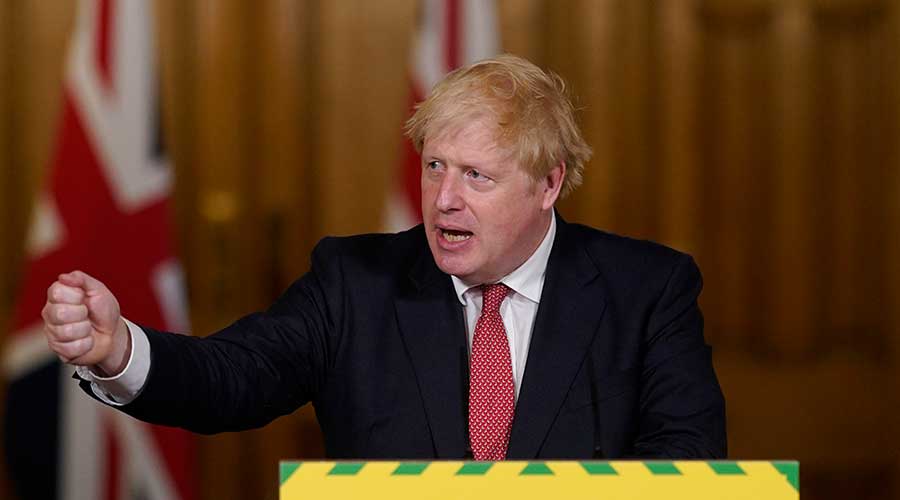The Prime Minister was asked by the journalist: “Do you believe that this is a crisis?”
The Prime Minister responded with the old trick of talking non-stop without answering uncomfortable questions.
The interviewer was clearly getting frustrated. Finally, he snapped: “Prime Minister, you are going to pause. Prime Minister, stop talking! We are going to have questions and answers, not where you merely talk, if you wouldn’t mind now.”
No prizes for guessing the Prime Minister was not Narendra Modi. No prizes for guessing the interviewer was not any of the numerous TV studio tigers who become rabbits in front of certain politicians. Modi told an interviewer recently that well-researched critics are so few that “sometimes, I miss critics”.
The Prime Minister who was told to shut up was Boris Johnson of Britain, interviewed by Nick Robinson on the BBC’s flagship Today programme on Radio 4.
Boris, who has boycotted the BBC for two years since he became Prime Minister, had a tetchy exchange with Robinson on Tuesday.
Robinson’s question about the crisis reflected a general sense that Brexit isn’t working and the petrol and other shortages currently crippling much of Britain are a symptom of the government having lost its grip.
Boris said he would not solve the problem by having “uncontrolled immigration”. The garages running dry and shortages in supermarkets were merely “the stresses and strains that you’d expect from a giant waking up” — themes he repeated at his big speech at the Conservative Party’s annual conference in Manchester on Wednesday.
Unlike 2007 when Modi asked for a glass of water, removed the mic and abruptly ended an interview with journalist Karan Thapar when he suggested to the then chief minister that he should express regret for the Gujarat riots, Boris stayed till the end on Tuesday.
After being admonished by Robinson, Boris said he wanted “to get back to the point I tried to make before you asked me to stop talking….”
At the end, Robinson concluded: “Thank you for coming. Thank you for talking to the Today programme, allowing the occasional question as well.”
Boris responded: “It’s very kind of you to let me talk! Very kind, very kind.”
Opinion was divided on whether Robinson had overstepped the mark.
John Humphreys, who has now retired from the Today programme but was once feared by politicians in the days he was known as “the Rottweiler”, commented: “Nick did something I never had the nerve or the audacity to do in 33 years of political interviewing. He told Mr Johnson to shut up.”
Many listeners praised Robinson, with one writing on Twitter: “Johnson finally put in his place, he needs to answer the questions not just spout whatever he wants hoping to run out of time.”
But others felt it was “rude” to interrupt the Prime Minister.
John Redwood, Tory MP for Wokingham, protested: “When the PM had a good answer to a question, the BBC Today programme tried to stop him, asking a different question. BBC interviewers should allow an answer and pretend to be interested in the person they are interviewing. They seem to want to impose their view instead.”
Among those urging Boris to step down is his former editor at The Daily Telegraph, Max Hastings, who set out his trenchant views in an article in The Guardian: “For his sake, and Britain’s, now is the time for Boris Johnson to ride off into the sunset.”
Hastings said: “Whatever view we take of his record, he is assured of many pages in the history of the times. Only Nigel Farage has been more influential in reshaping our politics. Johnson can resume his rightful career as an entertainer. His memoirs, entwined with the diaries that he has assuredly been keeping (to the discomfiture of everyone who has spoken to him privately since he took office) will be worth millions. He might explore new terrain by becoming a devoted family man.
“Almost none of the above is designedly facetious. If Johnson quits soon, he can remain famous, become rich and escape the protracted descent awaiting him if he lingers, eventually to vanish beneath the flock of poultry returning to roost in Downing Street.”
This will not necessarily help chancellor Rishi Sunak’s long-term prospects but Hastings asked, “Who would follow?”, and then suggested, “To many of us, Rishi Sunak seems the only acceptable answer. It is true that we still know relatively little about him, because of his rapid ascent from Winchester head boy, through obscure backbencher to chancellor. He would be handicapped by the impossibility of matching Johnson’s feel-good skills with all manner and condition of people. But he possesses star quality, grace, dignity, integrity, a sense of responsibility and gravitas, such as none of his cabinet colleagues can match. He does not taunt Johnny Foreigner. He was not a member of the Bullingdon club.”













